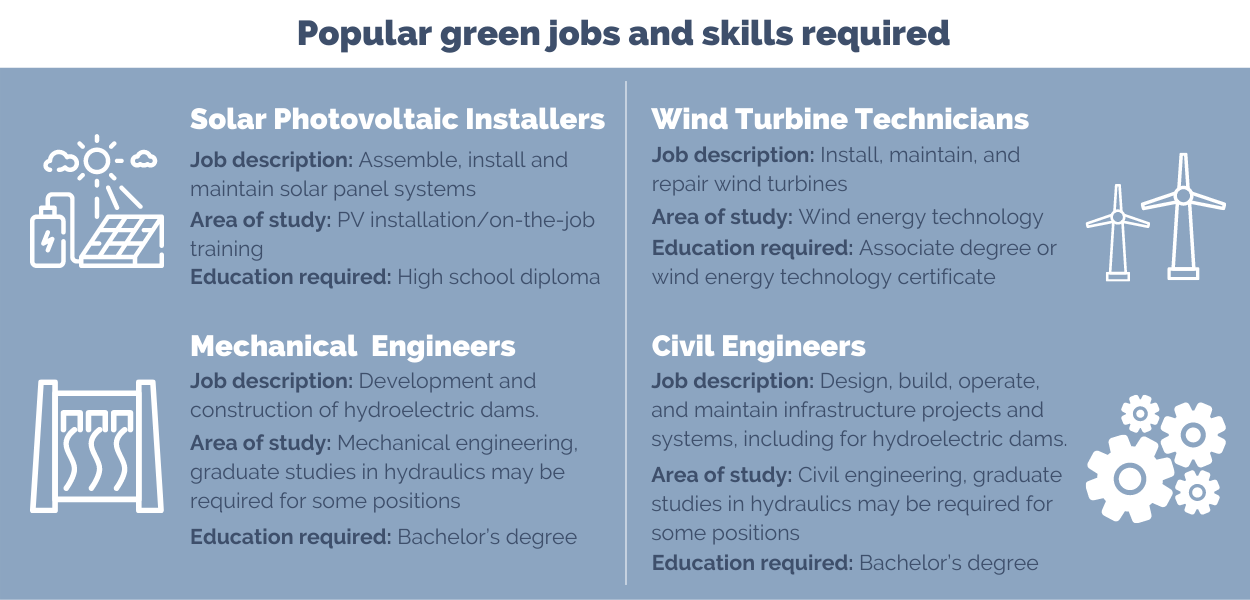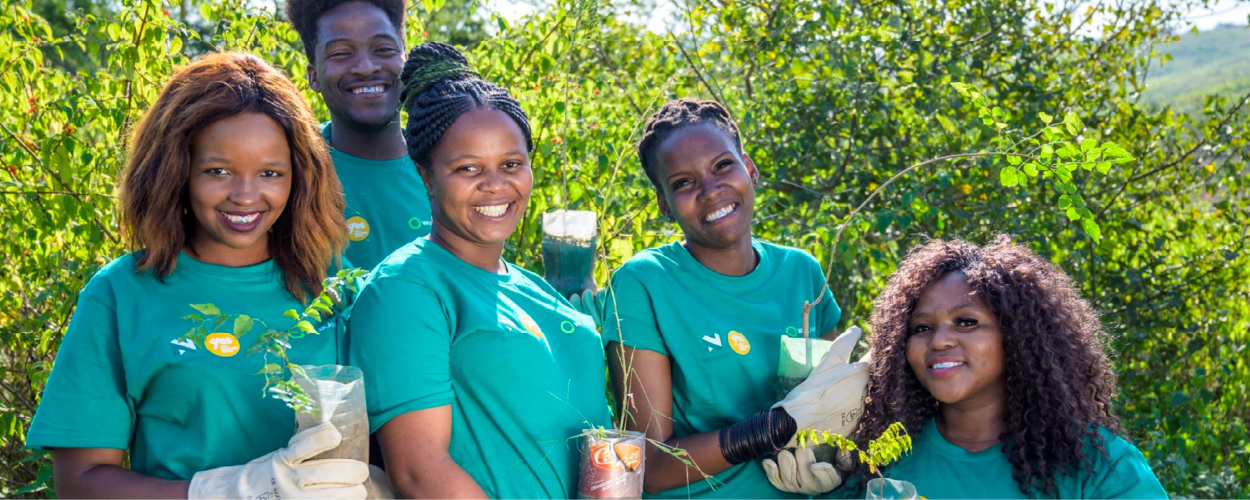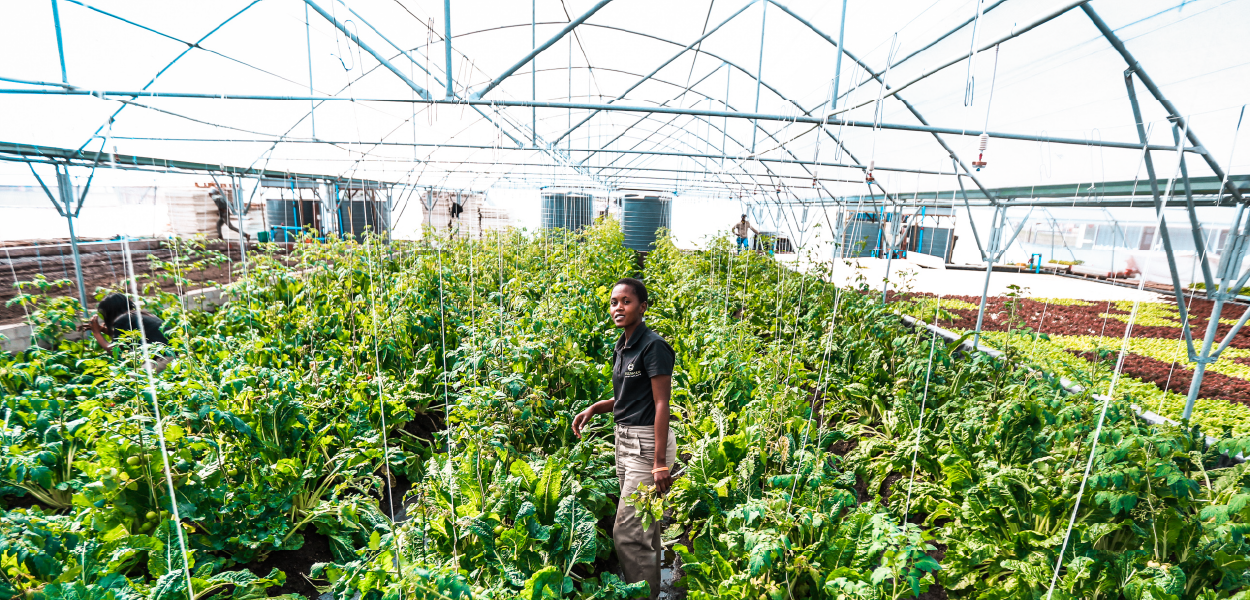In pre-COVID September of 2019, millions of people participated in climate protests, which erupted widely and shook up much of the world, as predominantly young activists demanded climate justice. Although it seems like it happened an age ago, with COVID-19 taking precedence in the zeitgeist, climate justice and change is still a pressing global concern
What are green jobs and why should brands care about creating them?
Green jobs directly and indirectly help to preserve or restore the environment. They appear in increasingly more sectors as the roles become popular, accessible, and necessary. Green jobs are now found in traditional sectors like manufacturing, construction, agriculture, tech, tourism and mining, as well as in emerging sectors like renewable energy and eco-tourism.
This Heritage Month, we’re thinking about ways we can conserve and preserve South Africa’s rich environmental heritage.
Here are six reasons why your business should care about creating these roles in South Africa:
1. Climate change needs urgent address
2021 saw the ocean quite literally being set alight in the Gulf of Mexico due to a gas leak from an underwater pipeline. Both the western black rhino and the northern white rhinos have officially become extinct in the wild, and there’s a plastic island three times the size of France floating somewhere between California and Hawaii. It is no secret that the way humans are using the earth’s resources is unsustainable and a danger to our species’ survival.
Creating more green jobs, both directly and indirectly, can contribute to looking after our planet. YES is often heard repeating the refrain, “no country, no company”, but it should go without saying that no planet most certainly equals no future.
It is not only the innovative, eco-friendly jobs that are required, but also a rethinking of our operations, and the way in which we perform our roles, to make an impact on the planet.
2. Investors and consumers alike demand it.
There is increasing importance being placed on environmental, social and governance (ESG) strategies and the United Nations’ (UN’s) Sustainable Development Goals (SDGs) by global investors and consumers. Between the advent of ESG investment indices and the rise of the intelligent consumer, many are choosing where and what to buy based on an organisation’s environmental impact.
Investors and consumers want to know that your organisation is doing its part to combat climate change, either directly through its operations, or indirectly through its corporate social investment (CSI), SDG and ESG strategies.
3. The sector is growing
A climate emergency + increased pressure on companies to be greener means the green economy is growing – and fast. The USA Bureau of Labor Statistics have projected above-average growth over the next ten years in careers within the environmental industry. Specifically, careers that link to the vision of a global green economy, that would eliminate the need of fossil fuels in favour of alternative or renewable energy sources.
4. There are really cool jobs that are beginning to emerge
As the sector grows, so too do the cool, innovative and high-impact careers that will be in-demand in the future. In both the traditional and emerging sectors, there are a mix of low-, mid- and high-skilled careers on offer for our youth.

SOURCE: BUREAU OF LABOR STATISTICS
5. South Africa is getting off the grid
Eskom CEO Andre de Ruyter announced in 2021 that the national power utility will continue with loadshedding for the next five years. South Africa has been grappling with rolling blackouts on and off for the past 13 years. This has had dire effects on the country’s economy. In 2019, Francois Stofberg, economist at the Efficient Group, told BusinessTech that the cost of loadshedding has reduced the country’s GDP growth by around 0.30%, which translated to R8.5 billion of “real, inflation-adjusted rands.”
Mark Swilling, of the Daily Maverick, noted that the only way to solve loadshedding and its effects on the economy is to quickly implement the “cheapest and most reliable energy on to the grid within the next three years.” He emphasised that only renewables are suitable for this task – they are the cheapest and quickest to implement.
In a massive breakthrough for private electricity provision in South Africa, it was announced that businesses will now be allowed to generate power of up to 100 megawatts each, without a licence. Private renewable energy companies will also be able to commercially sell energy with this landmark change in legislation.
With many South African citizens moving off the grid and onto solar or wind, there is massive opportunity for new, exciting jobs within the South African renewable energy sector – meaning a chance to create crucial careers for youth. The expanded youth unemployment rate for ages 15-24 has breached 75%, so why not use South Africa’s energy and employment crises to create a future that works for all?
6. Our economy needs it
The devastating impact of COVID-19 has wreaked havoc on the economy, particularly on the tourism and hospitality industries which have been hit the hardest. Our country’s natural heritage sites, flora, fauna and sprawling beaches are a huge part of our value-proposition to tourists – and will play a vital role in rebuilding South Africa and preserving an environmental legacy for the next generation.
Plus, both locally and internationally, green jobs are becoming increasingly attractive with younger people entering the workforce. “As more young people identify climate change as the defining issue of their generation, more are seeking careers that will have a positive environmental impact,” says Mikael Mulugeta, writer at Best Colleges website.
Creating jobs in conservation will preserve our abundant natural resources for much needed economic gain. More than that, we can begin creating meaningful jobs for our youth (jobs that youth can get excited about) that contribute directly to the social, environmental and economic wellbeing of their communities and South Africa as a whole.
How YES can help
Global research shows that conservation activities represent one of the highest impact job creation opportunities in all countries and YES, through its turnkey solution (host partner model), offers businesses in South Africa the opportunity to create youth jobs in this sector while enhancing their B-BBEE credentials.
How does the YES turnkey solution work?
The YES turnkey solution works with 31 YES-vetted host partner across South Africa to place youth. If a corporate cannot place youth in their own organisation, they have the option to place youth with our host partner. The YES host partners are generally NGOs working in communities, which means youth do not have to travel far for work and they can play an important part in building their communities. Find out more here.
YES has a proven track record of creating meaningful, measurable impact for country, company and youth: In just two and half years, over 61,155 work experiences have already been created for youth, injecting R3.5 billion back into the economy directly through youth wallets. Through the YES mobile applications, youth have logged 10 million learning minutes in modules that teach them soft skills and work readiness. Over 650 B-BBEE level ups have already been awarded, and this, with no government funding.
Register with YES
Receive up to two B-BBEE levels up almost immediately in your first year with YES. Calculate your target now and co-create a future that works for all.
Sources:
Best Colleges. (2021). Today’s in-demand green jobs
Stoddard, D. (2021). Eskom’s De Ruyter on performance: ‘We are not where we want to be’.
Swilling, M. (2020). Load shedding will cripple our economic recovery – we must bring renewables onstream fast.




